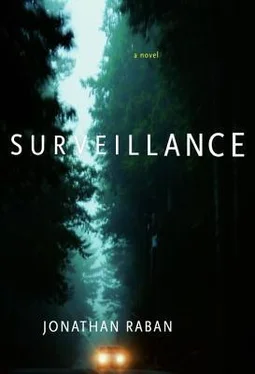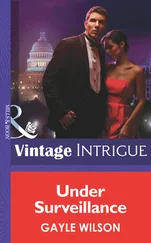Puffing up Adams Street, pausing for breath midway between intersections, he thought, It’s me, then No, it’s Brian, then Maybe I was just imagining the whole thing. Down by the federal building, the emergency vehicles, honking and wailing about what would almost certainly turn out to be nothing, were sending him a personal message.
SEATED AT HIS LAPTOP, he clicked on Word, and when the blank page came up he selected from the control panel first 150 %, then Arial Black, then 48-point type, then Bold, then Underline. Prodding at the keys with his forefingers, he typed:
NOTICE OF DEMOLITION
Looked good. He thought the dense, black, official appearance of his handiwork would scare the living shit out of the fuckers when they found it in their mailboxes.
He reset the controls and with his old Webster’s New World Pocket Dictionary —its pages now held together with a fat rubber band — at his elbow, began to compose the letter to his tenants:
Sir or Madam:
AFTER A LUNCH that included a cautious glass of chardonnay, Lucy’s spirits rose a little, and when she went back to her desk she felt ready to write the first of what she thought of as her “snapshots.” She chose this one at random: Augie at the piano, his thick and blunt “shade-tree mechanic’s” fingers splayed awkwardly across the keys, white mustache bristling as he squinted intently at the score on the stand.
For help, she went over to the stereo and put on Stephen Kovacevich’s recording of Schubert’s last piano sonata — as she’d thought, an insanely ambitious piece for a raw beginner. The first movement, molto moderato, wasn’t moderate at all. It began with a deceptively simple, plangent tune, but within moments one began to hear darkness in the ominous rumble of the bass; then the music rushed and slowed, rushed and slowed, continually dissolving from gentle, elegiac lyricism into crash and clangor. As the notes that came with the CD said, it was “as if the grim reaper himself were present, forbidding any touch of solace, let alone Gemütlichkeit. ” The emotional swings — sweetness to fear, threat to anger — followed so fast on one another that Lucy could hardly keep up with them. Bipolar Schubert, with his alternating bursts of mania and depression, seemed to be in the room with her as she listened. He’d died at thirty-one, dogged by failures in love and his musical career, and riddled with syphilis, according to Grove’s great musical dictionary.
Augie himself would surely die long before he could play just this first movement with anything remotely like Kovacevich’s sureness of touch and feeling.
First she tried writing in the past tense, then changed to the present. Vanags —no, Augie — sits at his brand-new Steinway grand. …The paragraph was brief, mainly about his haphazard fingering. By 3:25, when she had to go pick up Alida from school, she had three paragraphs she could live with: Augie murdering Schubert, Augie discovering the gumboot chiton, and Augie displaying his presidential cuff links. Not bad for half an afternoon, considering.
Though the sun was out, it was still too cold to drop the Spider’s top. And driving to school, she found herself beset by the question she’d been fighting off all day: why was Mrs. Tillman so keen to know the exact date of the temporary passport that Lucy had invented for him?
RICH ON her sand-dollar money, Alida wanted to catch Mr. Kawasuki’s Almost Antiques before he closed the store at six.
“You finished your homework already?” Her mom didn’t even look up from her writing.
“Yeah, it wasn’t much.”
“Don’t be too long, Rabbit — and watch out crossing the street.”
RATHER THAN TRUST the slow and temperamental elevator, Alida ran down the stairwell and, in the foyer, saw Mr. Lee stuffing letters into the bank of mailboxes.
“Hi,” she said, but he didn’t turn or even make a grunt of recognition. It was like talking to a deaf person. Too weird. Once past him, she pushed through the double doors onto the sidewalk and looked both ways, but there was no traffic.
Alida had taken two steps from the sidewalk when suddenly she felt wobbly — almost, but not quite, falling-down wobbly — and had to plant both feet wide to steady herself.
Her first thought was that she’d been hit by a lightning strike of stomach flu; then she heard the car alarms, hundreds of them, coming from all across the city. On the far side of the street she saw the water bowl that Mr. Kawasuki always kept full. It stood under a notice saying “For Our Four-Legged Friends,” as if dogs could read. Now water was slopping out of it, rocking west to east and east to west, and as she watched the level in the bowl sank by more than an inch.
She heard the foundations of the buildings grinding, deep down, against rock, like they were being gnawed by a tribe of giant rats.
Four feet from Mr. Kawasuki’s dog bowl, a hairline crack showed in the sidewalk, then came snaking across the pavement toward her, made an abrupt swerve, and headed off in the direction of downtown. The crack widened, became a rift and then an open trench. Alida had never guessed how much went on below the surface of Adams Street — the bundled cables of different colors, the rows of pipes. It was like seeing a massive wound open in the body of the city, exposing all its internal organs, its intestines and ganglia and stuff. Augie’s word “infrastructure” came back to her. So this was what infrastructure looked like. She caught the stink of shit from a sewer pipe; then the trench started to fill with a firehose-stream of water from a burst main.
She’d been a little kid during the last big earthquake, which happened one morning when she was in preschool. Teacher Ellen had told everybody to hide under the tables, which was kind of fun at the time, and they’d stayed there, huddled together, giggling, long after the temblor was over, with their teacher yelling hysterically about “aftershocks.”
No tables to hide under here. Too many bricks and tiles and things were falling onto the sidewalk for her to lurch back to the steps of the Acropolis. Looking for shelter, she saw the Spider, parked in front of Mr. Kawasuki’s shop, but just then a falling piece of masonry dropped right through the top, leaving a mouthlike gash in the tan vinyl. God, how her mom would hate that gash.
Tad’s heap was parked maybe fifty yards away — too far, she thought — and then was gone, as the front wall of the old spice warehouse detached itself from the rest of the building, wavered for several moments, and collapsed sluggishly onto the street, burying the car under a hill of smoking bricks. She bet that when they eventually dug the VW out of the rubble it would still work. Tad’s old car was like immortal, and he wouldn’t care about the dents — he’d be proud of them.
Alida thought it was best to stay on the pavement, as near to the middle as she could. She managed three steps, tottering as she went, and then sat down on the asphalt, hugging her knees.
It was odd how very slowly things were falling — thirty-two feet per second was the usual rule, but gravity didn’t seem to be working normally this evening. A tile would float down like it was suspended on a parachute or something, with Alida following its every movement during its casual, leisurely descent.
Below the overflowing trench, Adams Street had become a shallow river, trickling down to Elliott Bay, where Alida saw the strangest thing yet: the sea had disappeared and a ferry was stranded, leaning halfway over, on a bank of exposed mud, showing its rust-colored bottom, as if some crazy, drunken captain had been in charge.
She wished someone could put a stop to all those car alarms, whose noise was so distracting.
Читать дальше












